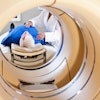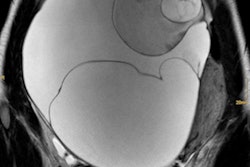Dear AuntMinnieEurope Member,
What's life really like for clinical radiologists in the pandemic? How has their role changed? What's good and bad about the new regime?
I know these questions are uppermost in your minds, so I asked regular columnist Dr. Paul McCoubrie to address them. He doesn't sugarcoat or gloss over the facts, and he's given a typically honest view of the past three months. It's a good read, so don't miss it.
Ovarian cancer remains a huge challenge. Only a minor improvement in overall survival has occurred in recent years, largely because ovarian cancer tends to be diagnosed late. But the good news is that artificial intelligence, radiomics, and radiogenomics are showing considerable promise in this area. Read more in our news report.
While you're in the Women's Imaging Community, find out how FDG-PET/CT can be a powerful tool in breast cancer due to its ability to image both anatomy and metabolic function. In a webinar on 28 May, Dr. José Vercher-Conejero from Barcelona, Spain, explained how to use the modality for breast cancer applications, particularly staging and treatment assessment.
Meanwhile, Swiss researchers have found that an artificial intelligence algorithm can automatically assess image quality on 3D whole-heart cardiac MR images, achieving results similar to a human expert. To learn more, go to the Artificial Intelligence Community.
During the pandemic, an uplifting aspect has been the willingness of Italian radiologists to share their experiences. For example, authors from Milan have described the case of a 25-year-old radiographer who contracted COVID-19 and lost her sense of smell. MRI suggests the virus may invade the brain through the olfactory pathway and cause dysfunction of sensorineural origin. Get the full story in our MRI Community.



















